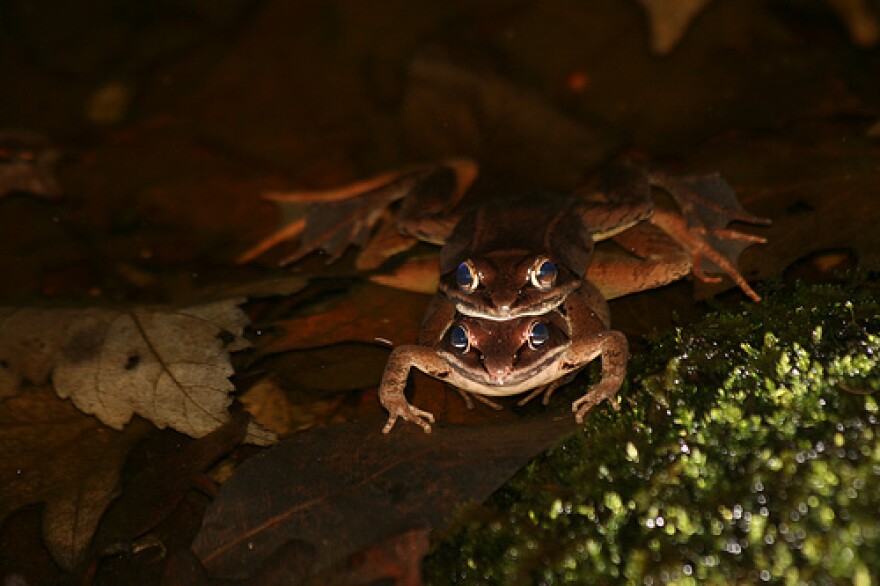When overnight rain arrives in March, male wood frogs emerge from cold leaves and soil to migrate to ancestral vernal pools still encased in ice. Wood frogs and Jefferson salamanders are the earliest amphibians to begin the annual rites of courtship in vernal pools formed by melting snow. The early imperative to breed drives small, chocolate-brown males to pools where they begin broadcasting clucking mating calls that sound like quacking ducks.
If rains continue, larger bronze-colored females make the pilgrimage to natal pools. The brief ensuing mating frenzy is fraught with peril due to territorial battles, mistaken identities and accidental drowning - the kind of pool party our parents warned us about!
During courtship, "gravid" females - filled with unfertilized eggs - lay eggs that are fertilized externally as they're deposited in huge floating masses anchored to vegetation at the surface of the pool. Males compete to clasp females in a mating embrace known as "Amplexus." Males hook forelegs beneath the female, lock extended thumbs and hang-on, warding off rivals. Rival suitors may attempt to dislodge males in splashing-kicking contests. Males emit a low, staccato "release call" identifying themselves to rivals who often mistake them for females. I've witnessed triple-decker frogs battling for the opportunity to fertilize emerging eggs.
Veteran vernal pool watchers don boots, rain slickers and bring flashlights to observe dramatic amphibian rites of courtship that begin with wood frogs in March and conclude with trilling toads by May, … Now THAT’S Something Wild.








